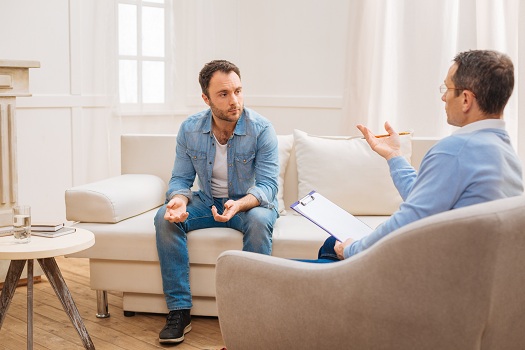Caregiving comes with the reward of getting to spend more time showing your senior loved one how much you care. Most days, you feel a sense of satisfaction, but there may also be times when you feel overwhelmed. Caregiving is also a balancing act that requires you to constantly find solutions to new problems that arise. Anxiety is common among caregivers, but it’s possible to handle it when you know how to practice self-care.
1. Learn What’s Normal for You
Being able to recognize your anxiety for what it is lets you know when it’s time to take action. You probably already know that excessive worry and nervousness are signs of anxiety. However, you might also feel physical sensations. Fatigue, dizziness, nausea, and shortness of breath can also be symptoms of anxiety. Once you know your typical reaction to anxiety, you can begin using relaxation techniques to ease the mental strain.
2. Try to Identify a Cause
Sometimes, anxiety just happens, but there’s often an underlying reason. Caregivers may feel anxious about having to handle tasks they aren’t prepared for, such as bathing their loved ones or helping them take their medication. You might also have general anxiety about the future or worry about whether you’re doing a good job. Depending on the cause, you might be able to take steps to alleviate your worries. Asking a professional to handle tasks you aren’t confident performing eliminates the fear of not being good enough.
A professional caregiver can be a fantastic source of support if you’re feeling overwhelmed by your responsibilities. Though you may be researching multiple agencies that provide home care service, Home Care Assistance has much to offer your family and your elderly loved one. We are leaders in the senior home care industry, offering proprietary programs like our holistic Balanced Care Method and around-the-clock assistance from reliable, experienced caregivers. Trust Home Care Assistance to help your loved one enjoy a happier and healthier life in the golden years.
3. Examine Your Lifestyle Habits
Caregivers often use caffeine to wake up in the morning and keep going through their hectic routines, but that second cup of coffee or jumbo-sized soda can easily cause you to experience more anxiety. Sugar and alcohol can do the same, so reevaluate your habits if you tend to indulge in junk food or drink more than one glass of wine at night. Reducing or eliminating your use of these substances can help you relax. Add in some daily exercise, and you’ll find your body processes stress hormones more efficiently.
4. Ask for & Accept Help
Try to look at your anxiety as a friend who is telling you that you’re taking on too much. Anxiety tends to rear its ugly head when you’re mentally and physically exhausted. If you notice your anxiety levels rising, look for ways to decrease how much you do each day. Reach out to your family and see who can step in to take a few things off your plate. You can also delegate other tasks to a professional home caregiver so you have more time to relax.
Family caregivers need to care for their own wellbeing. If you’re caring for an aging loved one and are feeling overwhelmed, consider hiring a professional caregiver to provide respite care. Roseville families who want to prevent burnout can turn to Home Care Assistance. One of our professional caregivers can assist your loved one at home while you take a nap, go to work, run errands, or go on vacation.
5. Seek Professional Support
There may come a point where anxiety is too much to handle on your own. If your symptoms are constant or interfere with your daily activities, you need to seek advice from a physician or counselor. Anxiety treatment can include lifestyle changes, medication, and talk therapy. Carving out time to address your anxiety means you’ll be in a better frame of mind when it’s time to care for your loved one.
If you’re the primary family caregiver for an elderly loved one and need additional assistance providing high-quality in-home care, Roseville Home Care Assistance can help. We are a leading home care agency committed to changing the way seniors age. If your loved one needs help with the challenges of aging, call one of our compassionate Care Managers today at (916) 226-3737.
